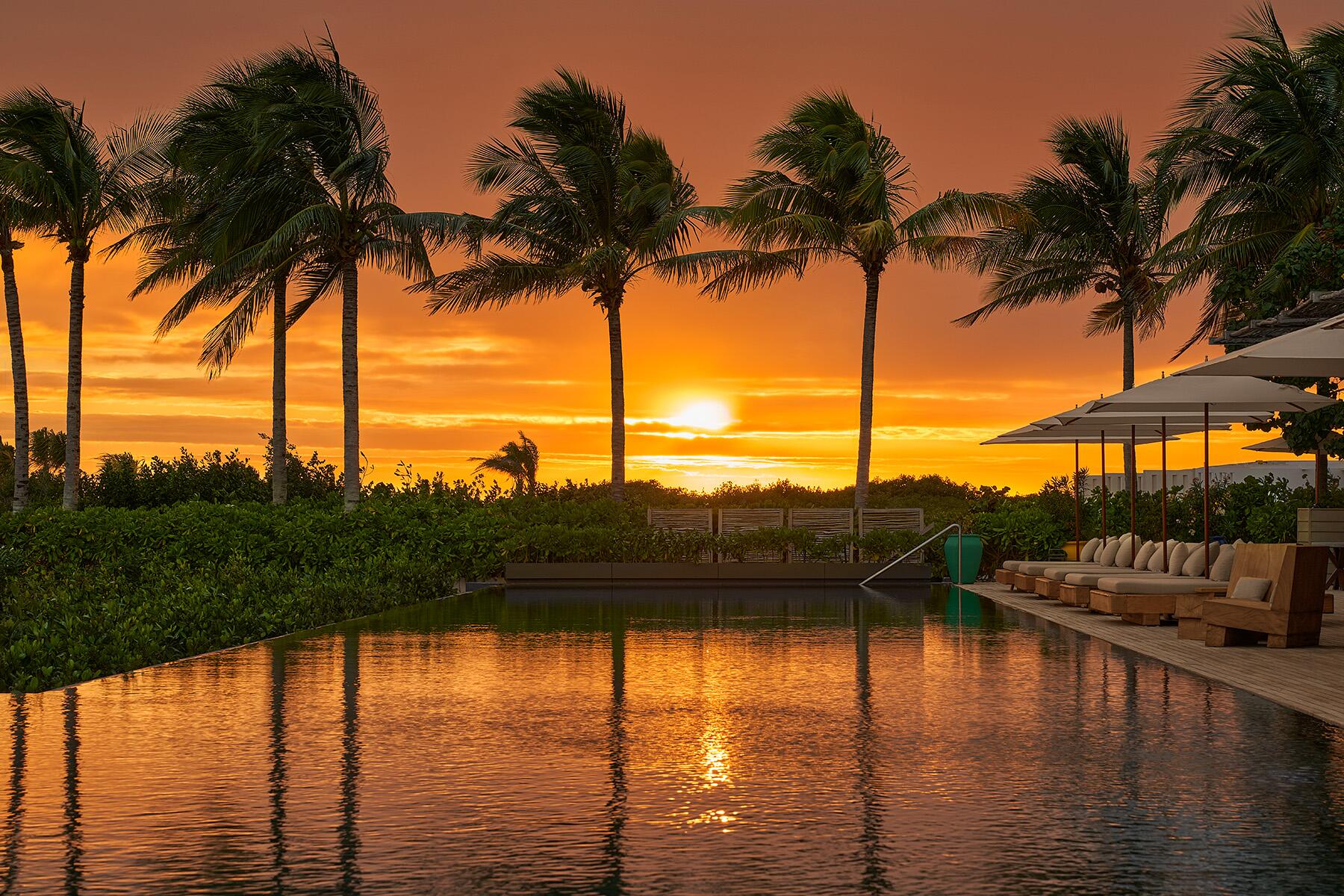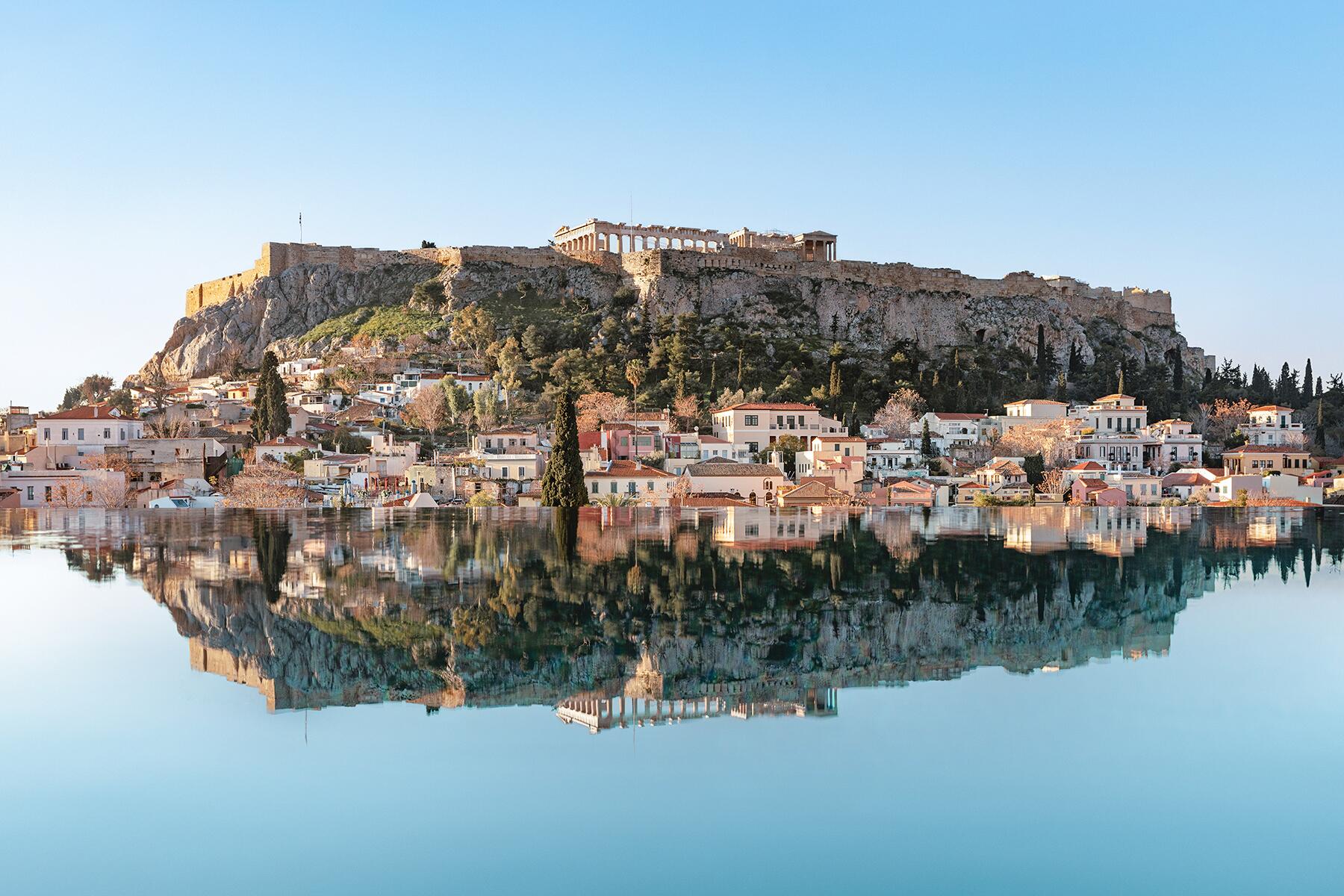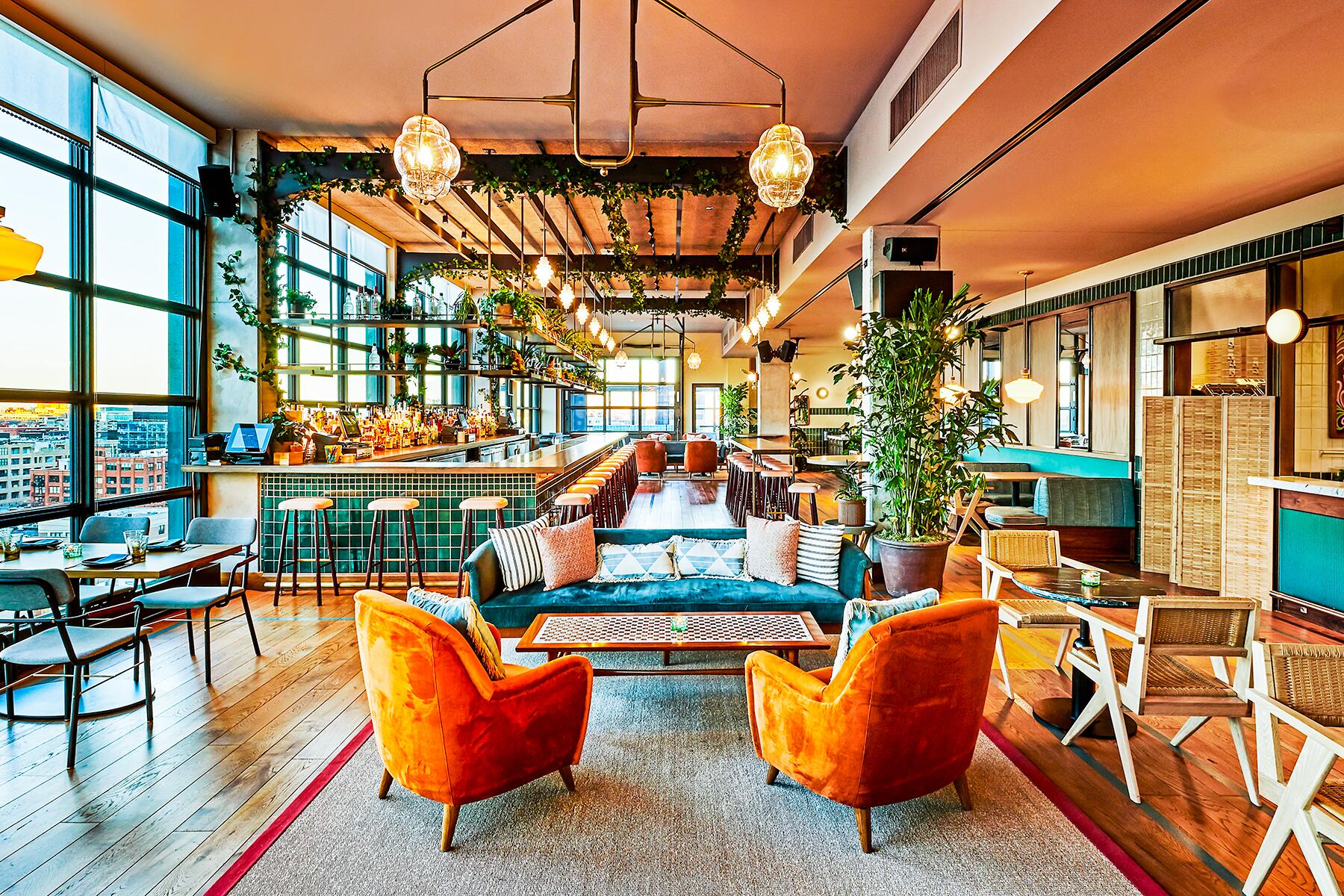The Hoxton recently opened in Barcelona. But in a couple of years, the brand will have doubled in size.
The hotel world has completely changed in the last couple of decades. They’re no longer simply places for out-of-towners to snag a room. Hotel restaurants are now culinary destinations; rooftop bars and lobby lounges have turned into popular hangouts. These so-call “lifestyle hotels” have turned into an entire category of lodging.
Avant-garde design meets social hangout spaces.
One of the leading lifestyle hotel brands is The Hoxton. The boutique chain prides itself on being an “open-house” hotel, which essentially means they want locals to come in, hang out, do work, have a drink, and make the hotel a casual daily destination.
We wanted to understand more about these properties, so we talked with The Hoxton’s chief operating officer, Rob Andrews, to get under the hood of this lifestyle brand and see what they have planned for the future.
FODOR’S: How do you describe The Hoxton brand?
ROB ANDREWS: We began in 2006 in Shoreditch [neighborhood of London] about 16 years ago now. When that hotel opened, I think everyone was saying, “In Shoreditch? Why are they opening in Shoreditch?” Fast forward 16 years, and it’s a bustling area, and it has gentrified an incredible amount. But from the get-go, I think the hotel was known for its incredibly vibrant, welcoming public lobby, and the dining concept. Since then, we’ve opened 10 hotels that have generally followed that dynamic. Obviously, the brand has gone through an evolution over those 16 years as we’ve opened each hotel, we’ve learned something new, we’ve tried something different. You’ll find more than one restaurant in the hotel, you’ll find multiple bars, you might find music venues, you’ll find co-working, rooftop pools. But we’re still following that same core DNA that we’re a group of open-house hotels. We really are rooted in the culture, the community, and all have a unique reflection and are an extension to some degree of the neighborhood that they live in.
Recommended Fodor’s Video
Can you explain this concept of open-house hotels?
When we look at the core DNA, it’s one of the most important things we think about when we think about a Hoxton. And that’s from the moment someone calls me and says, “Hey, we’ve got this potential Hoxton in X. Can it be a place the locals can frequent? And how do we get there?” We get there through a variety of stages in the process. But that’s it. We want the locals to come in and be in our spaces. And I think in our absolute most successful Hoxtons, you’ll feel and you’ll see that. I’d add to that that there’s not really any pretentiousness, everyone’s welcome. You don’t see a velvet rope scenario at the hotel. You don’t see someone pressuring you to order X amount of food because you’ve been sitting [at] the table for more than half an hour. It’s a very nice, easy experience to walk into a Hoxton, sit down, drink, eat, do whatever it is you’re doing today.
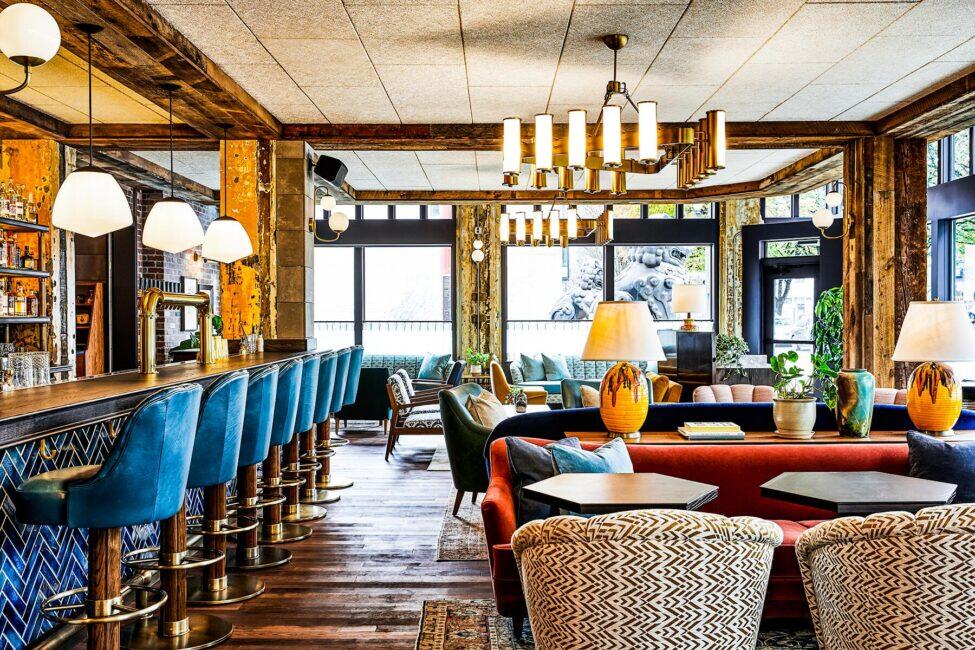
How do you differentiate yourself from other lifestyle hotels?
I truly believe that if you walk into the 11 Hoxtons that we have open currently, you know that they’re a Hoxton, forgetting the fact that there’s a sign on the door. You know it’s a Hoxton because of the process that each of those hotels has gone through to get them to opening day… [W]e have our own creative studio [and] employ a team of 20 very talented interior designers. [W]e spend a lot of time designing our spaces. In fact, the design of the hotels…is the thing that first attracted me to the brand and first attracted me to the job, to be honest with you. I just love the feeling of the interiors and how you feel when you walk into those spaces. That team is in there early and on the ground, they spend a lot of time researching the surroundings. In buildings that we’re adapting, they spend time researching the history of our buildings. Getting the design right and getting the flow of the spaces right is a massive first step in making sure that we hit one of those DNA points…I think that definitely puts us apart from some of our competitors.
What are some of the typical design features that guests can expect?
When you walk in, there’s typically some soft seating areas, it’s usually coffee spaces; you’re usually hit with some type of activated restaurant/bar. You’re never hit with a barrier, a desk, with two or three people smiling behind it looking straight out. I think at the entrance of all our hotels–Barcelona, you walk in and there’s this wonderful-looking bar, and you actually kind of need to hunt a little bit to find the reception, which I don’t think is a bad thing. They feel very residential. It doesn’t feel transactional when you walk into a Hoxton where I have to follow those steps: Got to check in, I’ve got to put my bag up. The feeling as you walk into a Hoxton is more “I want to grab a drink,” or “I want to grab a bite.”
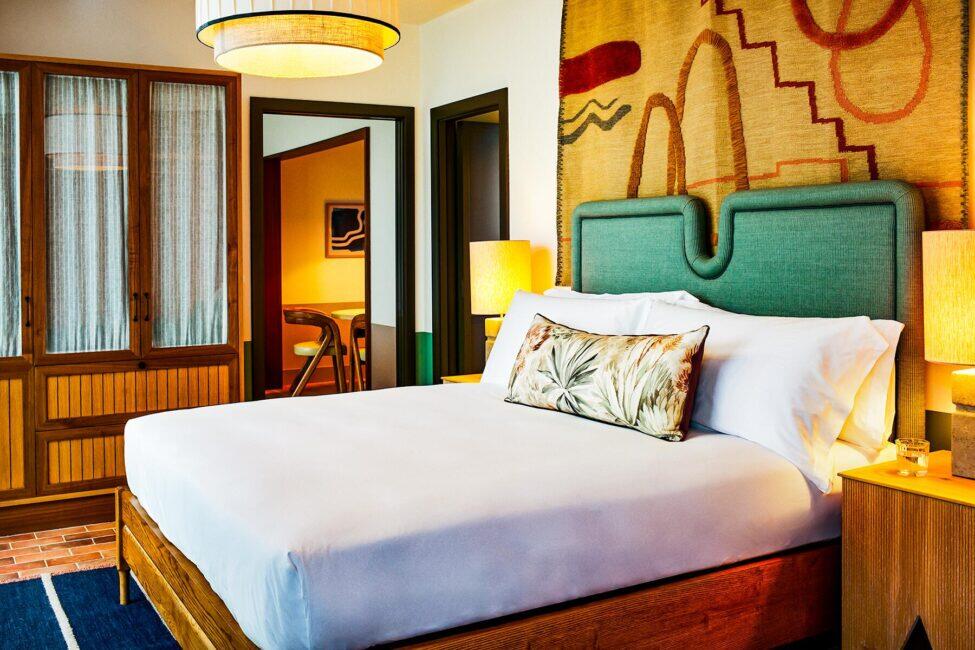
The hotel restaurant has had a renaissance in the last 10 to 15 years. How does each Hoxton differentiate itself between each Hoxton? What are the core principles you look for in the dining aspects?
[W]e take each project very individually. I wouldn’t say that there is a cookie-cutter template checklist that we would look at and say this is how we make it successful…In addition to having that internal design studio, we also have an internal food and beverage concept–they’re called Carte Blanched. And they do what our interior design studio do for the food and beverage. They’re involved very early on when we’re looking at whether or not [a] building can be a Hoxton.
Food and beverage make up to 50% of our revenue in a lot of our hotels. It’s not an ancillary piece of revenue… When I’m looking at a project, we’re immediately starting to talk about what type of concepts would work in this market. Sometimes it’s a signature concept that we come up with ourselves. Sometimes we partner with local talent, or sometimes we fall in love with an idea and find a chef partner to work with to help us develop the concept.
How does the Hoxton brand think about sustainability?
We have joined the commitment to eliminate single-use plastics in our hotels. When we first started talking about eliminating single-use plastics from our properties, you think, okay, you’ve got the toothbrushes and vanities behind the front desk, you’ve got your other bits, it should be quite easy. But when we audited our hotels, we’re talking 55-60 high-use items. Some of the things were pretty easy to change. I will say we have committed to eliminating all single-use plastics by the end of 2022.
Does The Hoxton adapt its sustainability efforts to different locations? For example, in Chicago, where the city is known for being windy, would you use wind turbines? Or, in Los Angeles, where the city is draped in sun, are solar panels used? Or are water reclamation efforts in place for California’s drought?
That’s phase two, for sure. Towards the end of this year, we have put together a group that’s led by one of our senior engineers in the U.K….[W]e have the benefit of slightly newer buildings, we’ve got renovated buildings where some of them already have certifications because they’ve been built responsibly. In Belgium, the hotel we’re opening in Brussels, we’re very into details on our carbon footprint, on sustainability as a whole for that building. But this is a multi-phase approach to be a more sustainable hotel company.
We have a tough winter coming up this year, and every summer is getting hotter. It’s going to be interesting to see how every hotel adapts to climate change.
Yeah, I agree. I think that there are big industry-wide changes that we need to make in how we build hotels, [some of which] we’re already integrating. And then I think that there are some larger wins in existing hotels that we can implement over time. And then there’s just the small stuff. Just before this, I got off a call with a partner of ours in Brooklyn and doing simple things like putting UV film across window spaces where we’re running air conditioning–that can rebound 90% of the heat that would get absorbed and therefore suck up all that extra air conditioning. So, there are bigger things that we should be tackling with large groups of hotels, but I think we’re also challenging our general managers to come up with projects that will chip away at that goal.
The Hoxton brand seems to be expanding rapidly. What’s next?
An explosion. I often look back at where we’ve been, Shoreditch in 2006, then we had a little break. We spent 15 years to get to 10 hotels, I think with good speed by the end of 2023, [or the] beginning of 2024, [we will] have doubled that. We’ve got a wonderful pipeline: Shepherd’s Bush [in London], we’re opening in Brussels next year, [then] Berlin, Vienna. We have three or four other openings next year that we haven’t announced yet.
The fact that we’ll double our count in 18 months shows what a strong pipeline of hotels we have. The majority of them are in Europe [but] the interest coming from the U.S. market right now is huge. And there are so many great cities in the U.S. that Hoxton would fit into beautifully.
Have you seen customer behavior change since the pandemic? Have you changed in any way?
We’re certainly in a period of normalcy. I will say, normalcy being we’re busier than we ever have been in every location that we operate in currently. When I look at how Hoxton is performing, compared to 2019, we are above in every market bar none. What does that tell me? It tells me that people are not necessarily getting back to the office, but people are getting back to taking trips. People are getting back to dining at restaurants.
I told you previously that probably 50% of our income is food and beverage, and as soon as the restrictions dropped, people were back quickly. It’s amazing how quickly people were ready to get some normalcy back into their life. And quite frankly, were ready to spend more than they had ever spent in restaurants and bars…We have a very loyal following. And, when we open a location like we opened in Barcelona, my feeling is that there were people just waiting for good travel news to come out for an excuse to go somewhere for three days, four days, or five days.
